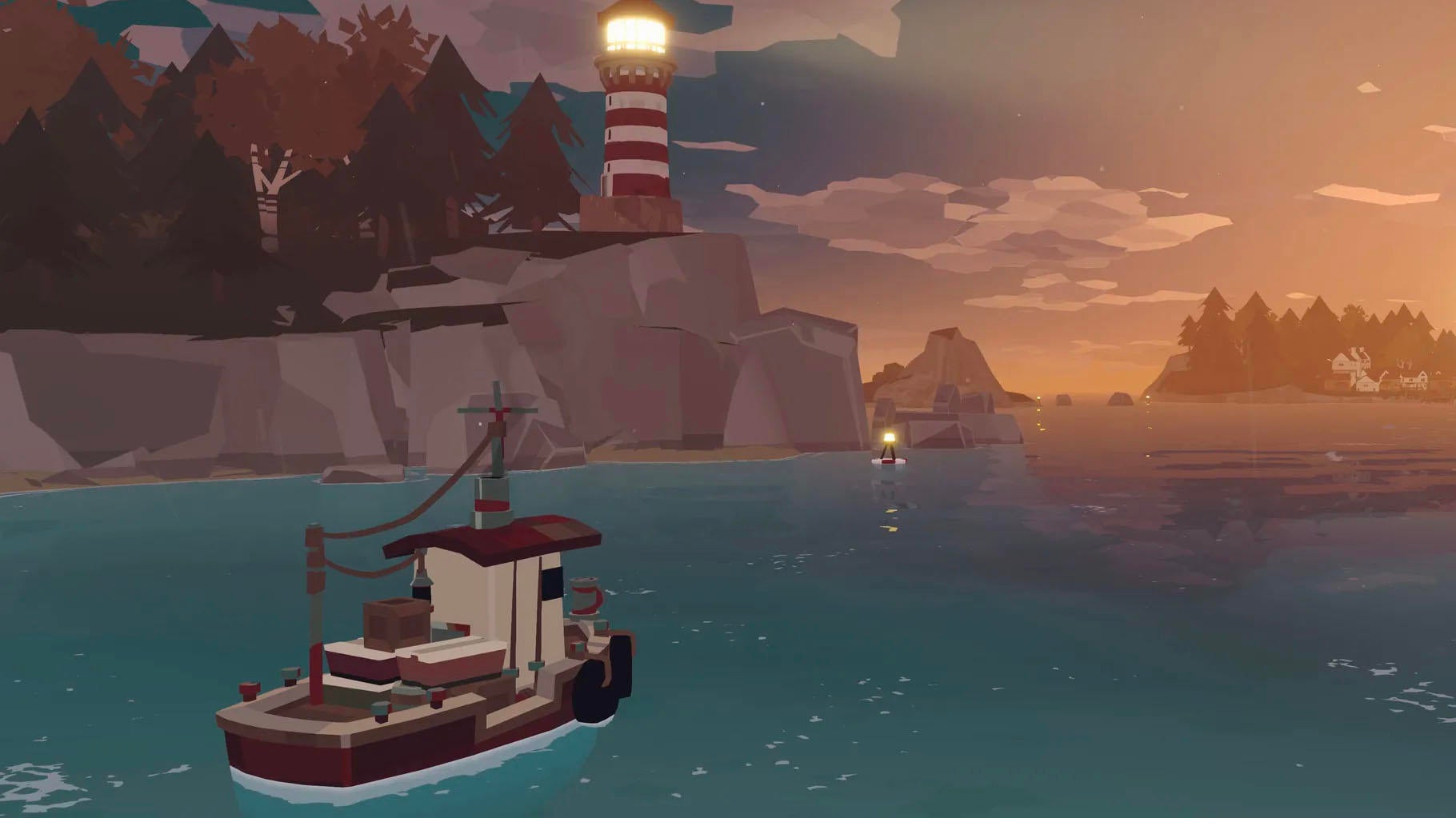Dredge Review: A Haunting Fishing Simulator
The daily relaxing monotony of simulators like Animal Crossing is subverted in Dredge, a new game that pulls Deep Ones from deep sea fishing. The new game by indie developer Black Salt Game cleverly combines exploration mechanics and a familiar gameplay loop of collecting fish and flotsam with a sinister and haunting undercurrent pulled straight out of the cosmic horror genre. Dredge proudly wears its Lovecraft influences on its sleeves in more ways than one by providing players with a comforting daily ritual while constantly reminding players of deeper threats lurking just under the surface of the ocean. The result is an intriguing game that unfolds at the player's pace, providing a fun and unique experience that's not quite like anything you've played before.
Dredge opens with the player marooned in a small seaside town, where they are quickly recruited as the town's new fisherman. Initially, players are encouraged to stick close to the town of Greater Marrow as they pay off their debt (for the privilege of using the town's boat) by selling fish and trinkets dredged up from the depths. After a few loops of catching and selling fish, a series of strange occurrences make clear that's something isn't right – occasionally, the player will find aberrant fish with strange mutations and dangerous behemoths chase after the player when they venture out into the sea at night.
Over time, players are encouraged to travel to five separate locales in Dredge, each of which has their own mysteries to unlock and dangers to confront or avoid. Exploration of the various islands is balanced by the fact that the seas become exponentially more dangerous at night. Getting caught out at port at night can quickly bring ruin, although there's no penalty at all for docking at abandoned exploration stations or campsites that would usually be the site of a good haunting encounter. While exploring and fishing, players will also have to balance limited cargo space on their ship and the need to upgrade their boat to better collect more exotic breeds of fish and confront the strange dangers that lurk in the depths.

Dredge is at its strongest when players are confronted with a limited amount of time to complete a task before night sets in. Many islands are spaced out so that players will have just enough time to reach the island, do a brief foray of exploration or collect one or two resources and then retreat to a dock at night. Fishing is time-sensitive, as players have a limited amount of time before their haul rots and becomes unsellable. Players are rewarded for having a purpose when setting out to sea at first dawn, although sometimes that purpose is limited to traveling to a town to sell trinkets or gathering crabs from crab pots.
There is a sort of comfort to be found in Dredge's core gameplay loop not unlike other simulator-style games. Gathering fish from the depths of Dredge is no different from gathering bugs in Animal Crossing, although there are constant reminders that the fish "aren't right," so to speak. While most of the NPCs of Dredge either turn a blind eye to the terrors that lurk in the deeps of the sea or have resigned themselves to the drudgery of their small lives, players can never truly escape the weirdness of the world no matter how settled they get in the routine. It's a clever take on the cosmic horror genre and captures the tone and vibes of the Cthulhu mythos much better than other games that devolve into shooting or punching their way out of unspeakable dangers.
The biggest flaw of Dredge is that the game's core gameplay loop provides heavy limitations to how players solve the various mysteries of the game. Almost all of the quests follow a rather linear pattern – players are given a quest by an NPC, they complete that task by either collecting fish or dredging ruins, and then they are rewarded with new items or abilities. Even the upgrade trees of the game are relatively set – players occasionally have a choice on which upgrade they want first, but there's no room for specialization or developing a unique style of....fishing. You simply move from Point A to Point B in Dredge, although you usually don't mind because you're caught up in the mystique of the game.

There's also very little incentive for being anything but safe in Dredge. Sure, there are quests that involve venturing out into the sea at night, but these tasks can often be completed close to safe ports and with minimal danger. Outside of the need of getting fish back to a fishmonger before they rot, there's not much of a reason to forgo resting on land as often as possible or to push out to the next island chain to see what might be uncovered before the next dawn. The world of Dredge feels very static at times, as the game's NPCs are content for the players to come to them no matter how long it takes.
Dredge is a fun indie game that explores the cosmic horror genre in a unique fashion by embracing one of the recurring motifs found in Lovecraft's works – the ocean. Although the game is perhaps too safe in how it confronts players with the strange and unknown, the fishing sim/exploration aspects are clever in how it subverts the creation of a familiar loop with strange monsters and teases of dark mysteries just out of reach. If you enjoy cosmic horror and are looking for a low-risk game that can be explored at your leisure, Dredge is definitely the game for you.
Rating: 4 out of 5
Dredge is now available on Nintendo Switch, PlayStation 4, PlayStation 5, PC, Xbox One, and Xbox Series X|S. A review code was provided by the publisher for the purpose of this review, and it was reviewed on a PlayStation 5.